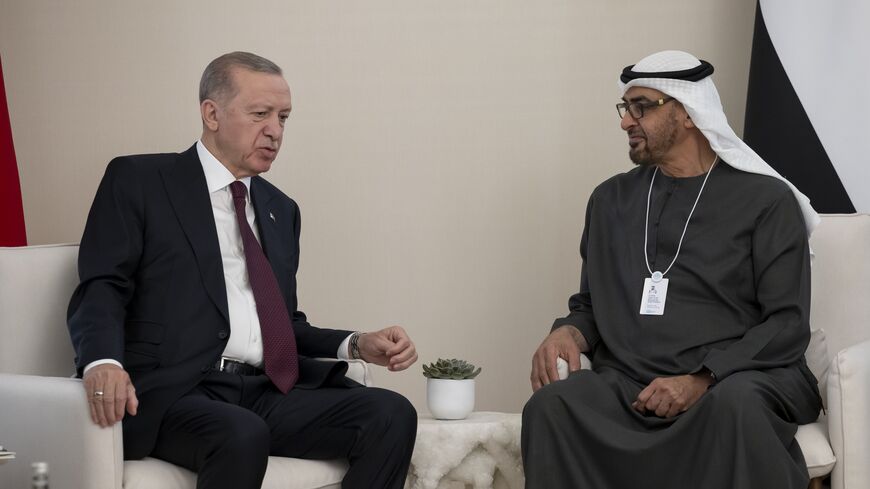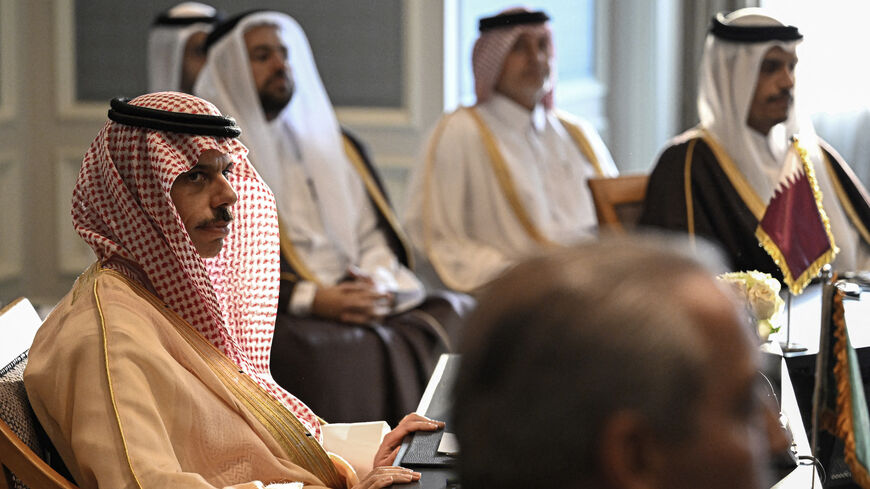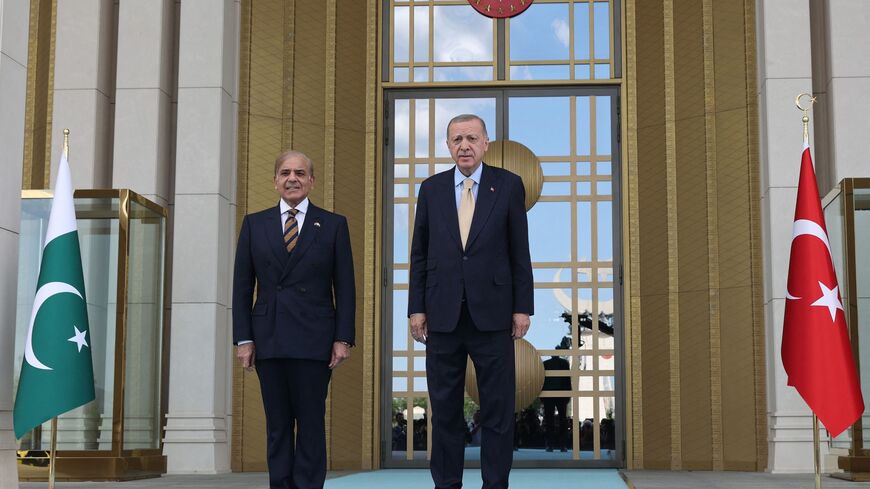Turkey’s FM to visit Qatar as regional diplomacy seeks to contain Iran-Israel tension
Turkey says its flurry of diplomatic activity is aimed at bringing the Gaza war back into focus amid the Israel-Iran escalation.

ANKARA — Turkey’s Foreign Minister Hakan Fidan will travel to Doha on Tuesday night where he is scheduled to meet with Qatari officials, as Ankara looks to bring the war in Gaza back to the forefront of regional attention since focus has shifted to the escalation between Iran and Israel.
Turkish President Recep Tayyip Erdogan said on Tuesday that his country was ramping up its diplomacy to prevent war in Gaza from being overshadowed by the Israel-Iran tensions, since Tehran launched a drone and missile attack on Israel in the early hours of Sunday morning, causing minimal damage.
“Our foreign minister had phone conversations with his American, Iranian, British [and] Jordanian counterparts, as well as the secretary general of the United Nations. I also had a telephone conversation with the Qatari emir,” Erdogan said Tuesday after a cabinet meeting in Ankara. “We will continue our phone conversations this week as well.”
Fidan will meet in Doha on Wednesday with Qatari Prime Minister Sheikh Mohammed bin Abdulrahman Al Thani — who also serves as the Gulf power’s top diplomat — to discuss the “situation in Palestine and regional developments,” the Turkish Foreign Ministry said in a statement.
Fidan is also expected to meet with Hamas political leaders based in the Qatari capital, Turkey’s public broadcaster TRT reported, citing diplomatic sources. Ankara does not consider Hamas a terror outfit, and the militant group’s political leaders can freely travel to Turkey.
Erdogan is among the most vocal critics of Israel’s war against Hamas. Last week, Ankara announced export restrictions on dozens of products to Israel and intentions to maintain them until a cease-fire is reached in Gaza.
After Fidan’s visit to Qatar, Egyptian Foreign Minister Sameh Shoukry is expected to visit Turkey to discuss the latest developments over the weekend, according to TRT.
The diplomatic surge comes as Israel weighs potential responses to Iran’s attack on Israel late Saturday night and early Sunday.
Regional powers including Turkey, Qatar and Egypt are warning both sides against further escalation. Tehran said the unprecedented attack was in retaliation for the Jewish state’s strike on an Iranian diplomatic mission in the Syrian capital earlier this month that killed seven members of the Islamic Revolutionary Guards Corps.
Erdogan on Tuesday pinned blame for the escalation on Israeli Prime Minister Benjamin Netanyahu — his longtime nemesis absent a brief period last year when the two leaders met for the first time in person in New York in September as part of a diplomatic thaw.
Describing the Israeli strike on the Iranian diplomatic mission in the Syrian capital of Damascus as a “violation of international law,” Erdogan went on to say, “Netanyahu himself and his bloodthirsty administration are undoubtedly primarily responsible for the tensions that brought our hearts to our mouths on the night of April 13.”
“We believe that statements made without accepting this fact will not bring any benefit in reducing tension,” he added.
The Turkish president also took aim Western capitals in a thinly veiled jab. “Those who have been silent about Israel’s aggressive attitude for months immediately rushed to condemn Iran’s response,” Erdogan said.
Gokhan Ereli, an analyst at the Ankara-based Center for Middle Eastern Studies, believes Turkey does not view the Iranian attack on Israel as completely independent from what is unfolding in Gaza.
“Still, Turkey is stressing the need for the reduction of tensions because further escalation between Israel and Iran would affect all other countries in the region,” Ereli told Al-Monitor. “Additionally, Turkey is really deeply concerned that Gaza will be forgotten amid these tensions.”
Indeed, Erdogan on Tuesday reiterated his country’s call for restraint. “We call on all actors to halt attacks and act responsibly. It is evident that our region is on the brink of new tensions unless the oppression in Gaza ends.”
Further Iran-Israel escalation would also decrease the chances of a potential cease-fire in Gaza, according to the analyst.
“As a number of actors are directly involved (in the Israel-Iran confrontation), the chance of a cease-fire is slimming,” he said, noting that the risk of a broader conflict in the region has already put the war in Gaza on the back burner.
US-Turkey diplomacy
Meanwhile, the conflict in Gaza and the escalation between Iran and Israel were also on the agenda of the meeting between Fidan and Acting Under Secretary of State for Political Affairs John Bass on Monday.
Following the meeting, the senior American official met with chief Erdogan adviser and spokesperson Akif Cagatay Kilic on Tuesday. In addition to the bilateral ties, the two discussed “the road ahead to greater peace and security in the region.”
This article has been updates since its initial publication.








